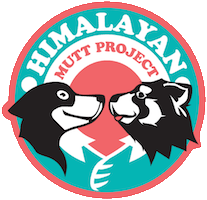Changing the future one dog at a time

35 dogs were hung to death in the village of Tukche last year because residents had become frustrated with the ballooning dog population. In Jomsom, street dogs were gathered onto trucks then relocated into lower lying areas because residents didn't want to kill them, but their actions created problems for wildlife and other residents. In Muktinath, a dead cow was laced with poison and left in the hills with the hope that some dogs would eat it and die, but several vultures were killed instead.
These are desperate acts by desperate communities struggling to find a solution to a dog overpopulation problem. Neutering and vaccination is the first step to curtail growing dog populations. For the first time in history, the residents of Mustang have an alternative and humane solution to manage dogs - but more work remains to be done. (Above: Man and his mutt, Kalo, in Ghasa)
Our team is thrilled to have accomplished something that has never been done before, but we have also learned a lot about how we can make an even bigger difference for dogs and people in the future. One of our biggest challenges from working in Mustang was catching free-roaming dogs that ply a vast and open landscape. Without appropriate equipment or know-how, residents were unable to catch dogs prior to us showing up in the village.
When our dog catchers arrived with the appropriate nets and leaches, we still had to work very hard to flush dogs from bushes and into corridors that we learned the dogs were using to move between landscapes. Chasing dogs at 3,800m is a lot more work than working at sea level! Sometimes we were successful, but often the dogs have many routes and small openings they can escape through - some even pushed through barbed and razor wire, their thick mountain coats leaving them unscathed.
Our plan for next year is to build and deploy humane dog traps that we can set in surrounding areas in the days leading up to our arrival. Long term education will also be required to convince locals that poisoning is not the solution, as it is harms whatever animal eats it, and has no longterm effects. We understand the frustrations of local communities, and are determined to do more to bring dog populations under control in a culturally and environmentally sensitive way for the benefit of people, wildlife, and dogs.






















